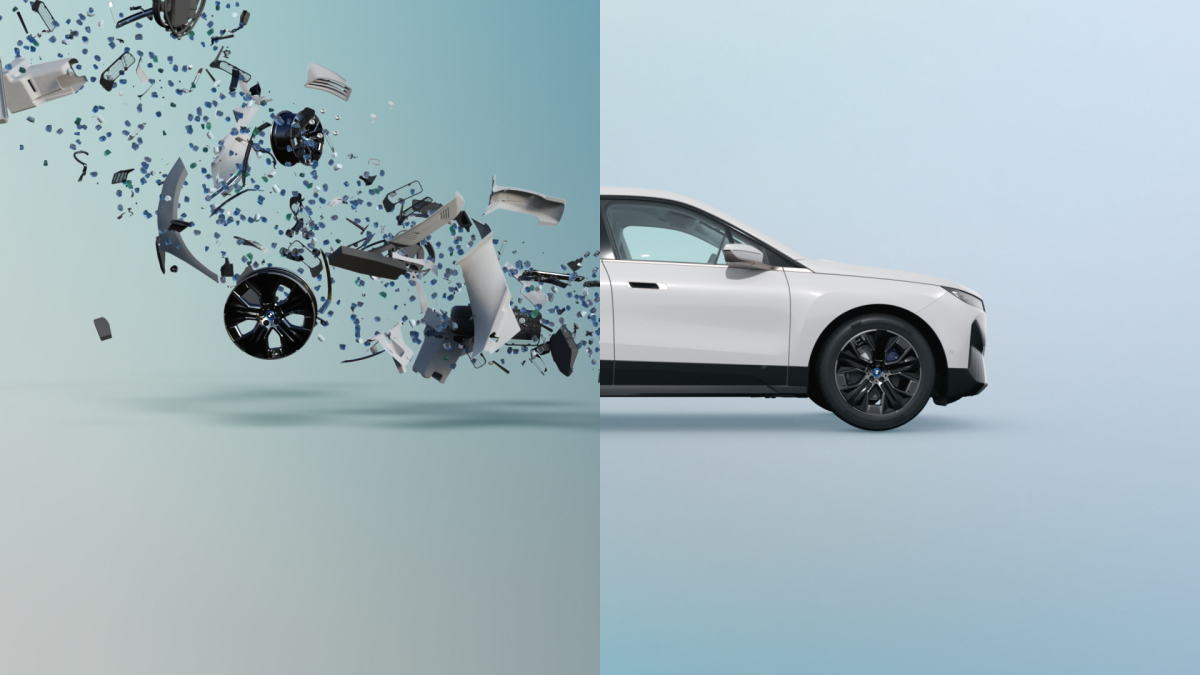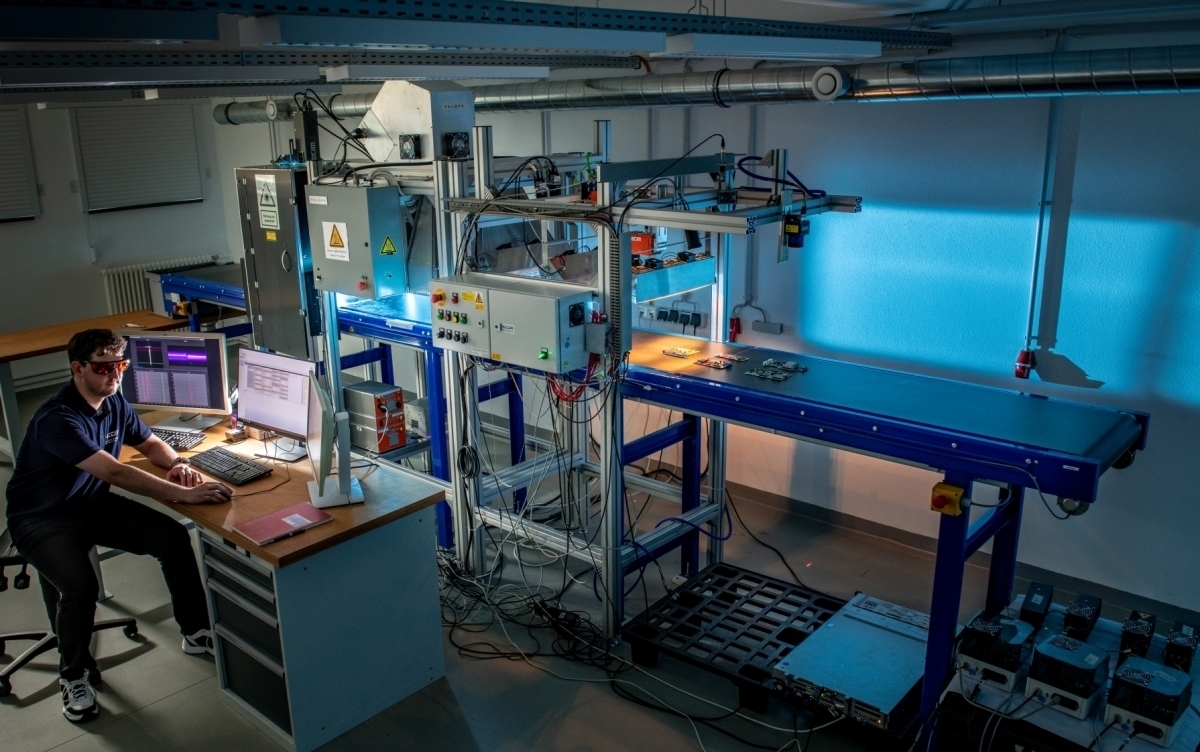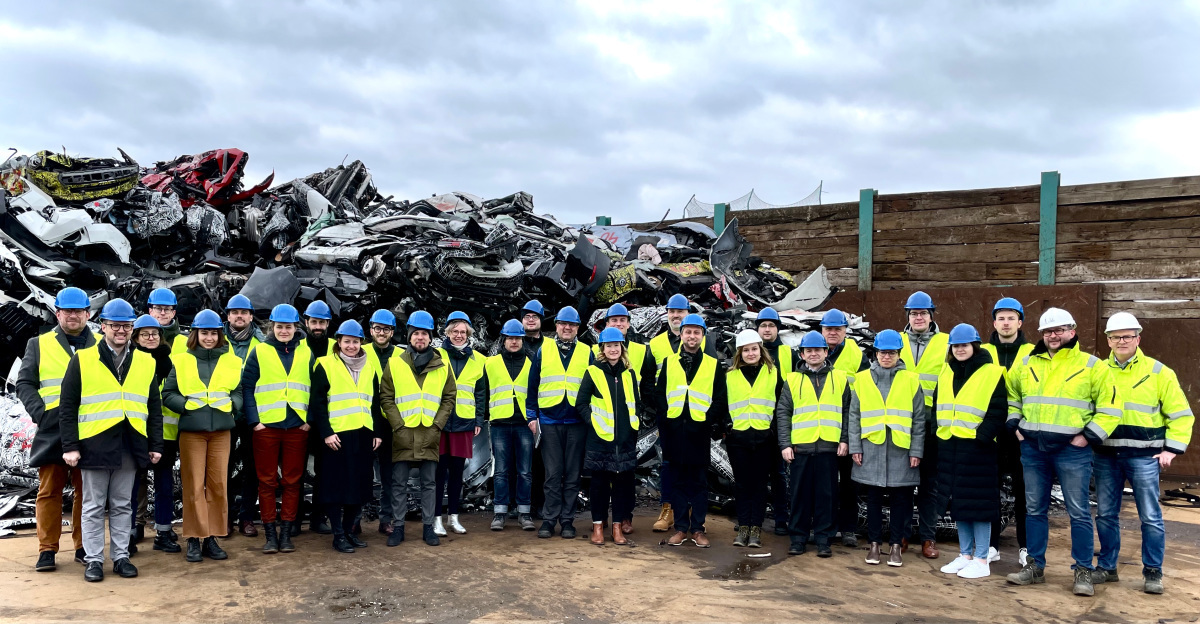Car2Car project develops technologies for an optimized recycling of end-of-life vehicles
25.04.2023The pressing supply risk of raw materials along with increased environmental awareness put end-of-life vehicles into the spot light of recycling as a valuable source for raw materials. In the Car2Car project, a consortium of automotive industry, recyclers and scientists addresses the challenges of closing material loops. The focus lies on increasing the quality of the secondary raw materials from end-of-life vehicles by means of innovative dismantling and automated, accurate detection and processing solutions. The Helmholtz Institute Freiberg for Resource Technology, an institute of the Helmholtz-Zentrum Dresden-Rossendorf (HZDR), contributes its expertise in material recognition using spectroscopy-based sensor technology together with efficient data processing solutions. Through improved recycling products, the Car2Car project aims to increase the proportion of secondary materials in new vehicles as a prerequisite for closing material loops in a circular economy.
 The Car2Car project is developing dismantling and sorting processes for the reuse of raw materials contained in end-of-life vehicles
The Car2Car project is developing dismantling and sorting processes for the reuse of raw materials contained in end-of-life vehicles
© BMW AG
The goals of climate protection and the risks of global supply chains for raw materials do also pose particular challenges for the automotive industry. In order to make vehicles, transport and mobility fit for the future, the German Federal Ministry for Economic Affairs and Climate Action (BMWK) has launched the "New Vehicle and System Technologies" funding program. The program supports the development and prototyping of new technologies by the end of 2025 in order to strengthen the innovation and future viability of the German industry on the long term. Michael Kellner, Parliamentary State Secretary at the BMWK, emphasizes: „A successful transformation of manufacturers and suppliers in the automotive sector is essential for Germany as a location for industry. A strong circular economy, which conserves and recycles resources, is an important step toward climate neutrality and at the same time secures supply chains. Innovation projects in this area are, therefore, of great importance. The BMWK funding program helps to strengthen the industrial value creation particularly by reducing the automotive industry's dependence on raw material imports and by securing the supply of raw materials to the industry in the long term."
Car2Car – sustainable, closed-loop concepts for vehicle recycling
In the BMWK-funded Car2Car project, experts from the automotive industry, scientific institutions and the recycling industry collaborate on sustainable recycling concepts for the most important material groups in the automotive industry (steel, aluminum, glass, plastics and copper). The consortium evaluates solutions for an automated disassembly and for an improved separation and processing for high-quality, type-pure secondary resources. In a large-scale experiment, the entire process chain from single vehicle parts until re-use of recycled raw materials in new cars is demonstrated and analyzed using 500 end-of-life vehicles provided by the project leader BMW AG. The respective expertise of individual project partners enables further developments of relevant process steps along the chain and together will provide the information needed to complement analysis of material flow models. Additional ecological and economic evaluations will ensure industrial scalability, effective greenhouse gas reduction and economic viability.
 Pilot plant at HIF for the detection and identification of complex composite recycling material streams
Pilot plant at HIF for the detection and identification of complex composite recycling material streams
© HZDR/Detlev Müller
With artificial intelligence to an efficient circular economy
The use of digital technologies and artificial intelligence (AI) can contribute to increasingly automated and accelerated recycling processes that were previously carried out manually. For example, the disassembly process has immense potential for higher automation levels when using robot technology. The integration of systems for optical sensing combined with AI-supported detection of material types in post-shredding processes makes it possible to significantly increase the quality and purity of the recycled materials aluminum, steel, glass, copper and plastic. The success of individual processing steps is determined based on representative samples along the processing chain. The sample characterization forms the data basis for the techno-economical evaluation and for balancing the material flows.
The Helmholtz Institute Freiberg for Resource Technology (HIF) at the HZDR has developed solutions for non-invasive, sensor-based identification of raw materials for several years. During the Car2Car campaign with 500 end-of-life vehicles, a sensor technology based on laser-induced breakdown spectroscopy (LIBS) combined with high-resolution optical sensors will be used for precise metal and alloy type identification in the shredded particle stream. The performance of the LIBS sensor technology for unravelling the relevant components in the material mixtures will be examined using the small-scale demonstration facility installed at HIF. Currently, recycling processes in the automotive sector are associated with a high degree of manual work as well as limited material purity and are, therefore, only economically attractive for very few vehicle components. Sensor technology and AI automate and accelerate these processes. The scientists also hope for research results that uncover new possibilities for polymers and their compounds with metals. "Metals and plastics are often found closely interconnected in end-of-life products. Therefore, we want to further develop the sensor technology so that it allows to not only distinguish between metals and polymers, but also to identify the specific types of the materials. This would be essential for increasing the quality of recycling products as the key prerequisite for the reuse of raw materials contained in end-of-life vehicles," explains Dr. Margret Fuchs, scientist in the field of sensor technology and spectroscopy at HIF.
 The project partners of Car2Car at the kick-off meeting in January 2023
The project partners of Car2Car at the kick-off meeting in January 2023
© BMW AG
The data and results obtained from the large-scale test in Car2Car will improve the currently available technologies in automotive recycling and can also be applied to other material mixtures from further recycling streams in the future. The researchers primarily consider low-alloy steels, aluminum, polymers and copper-steel composites as key representatives for resources and testing the potential for closing their material loops. The development and integration of new technologies for robust and fast material stream characterization will enable further steps towards an efficient and competitive recycling economy.
The Car2Car funding project is made up of the following collaborative partners:
- BMW AG
- TU Bergakademie Freiberg (Institute MVTAT, Institute IEST, Institute IGT)
- Helmholtz Institut Freiberg für Ressourcentechnologie (HIF) am Helmholtz-Zentrum Dresden-Rossendorf
- Technical University of Munich (Professorship Circular Economy, Chair fml, Institute iwb)
- Scholz Recycling GmbH
- STEINERT UniSort GmbH
- thyssenkrupp Steel Europe AG
- Salzgitter Mannesmann Forschung GmbH
- Aurubis AG
- Novelis Deutschland GmbH
- OETINGER Aluminium GmbH
- Pilkington Automotive Deutschland GmbH
